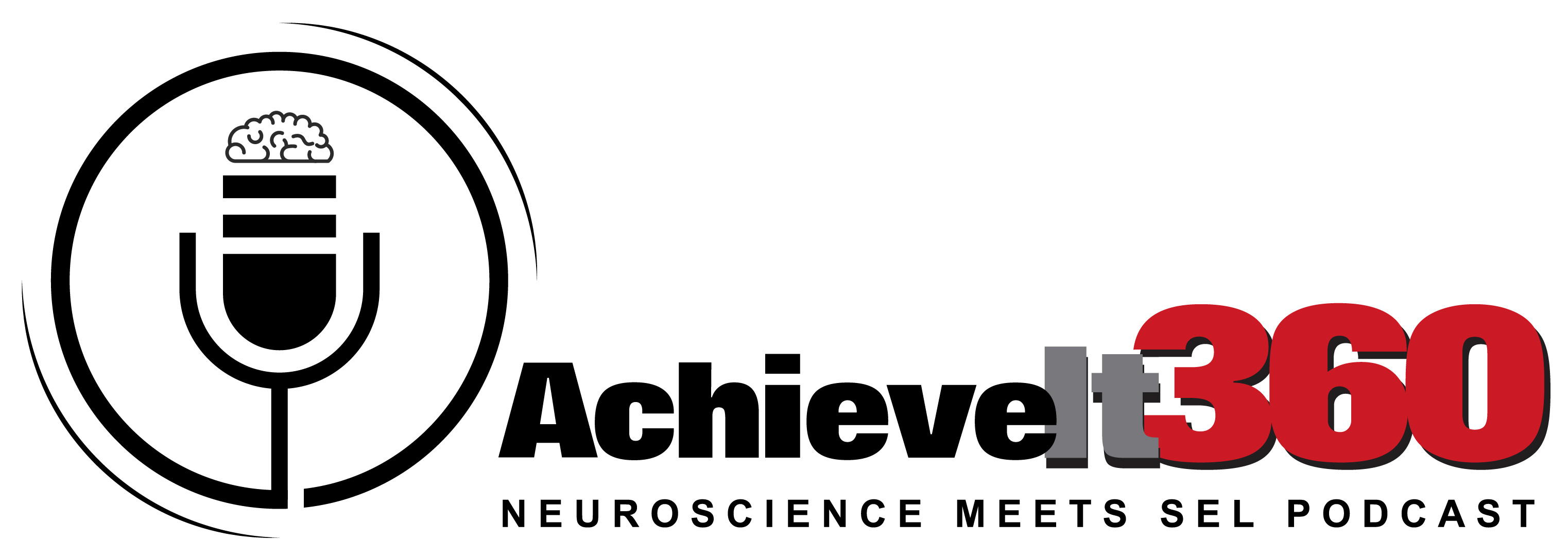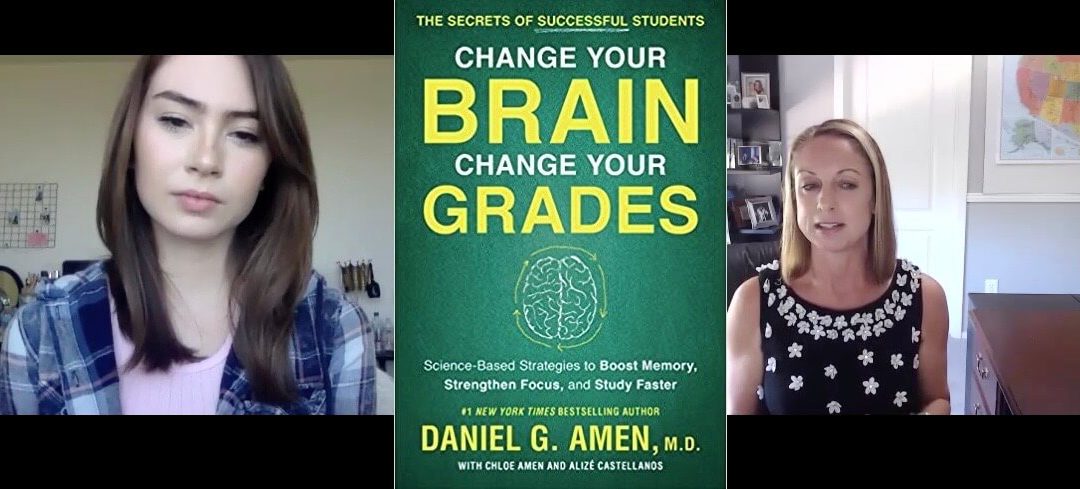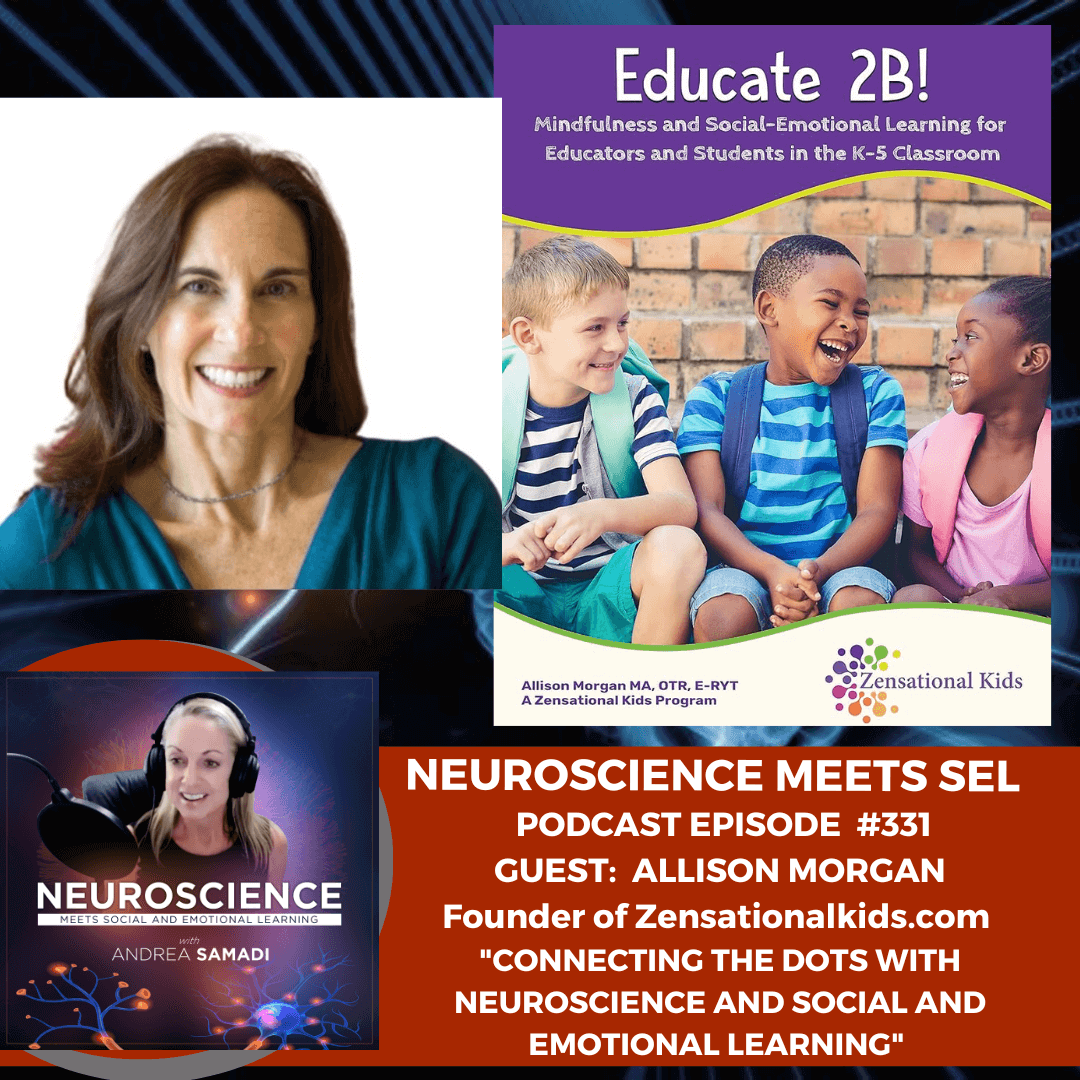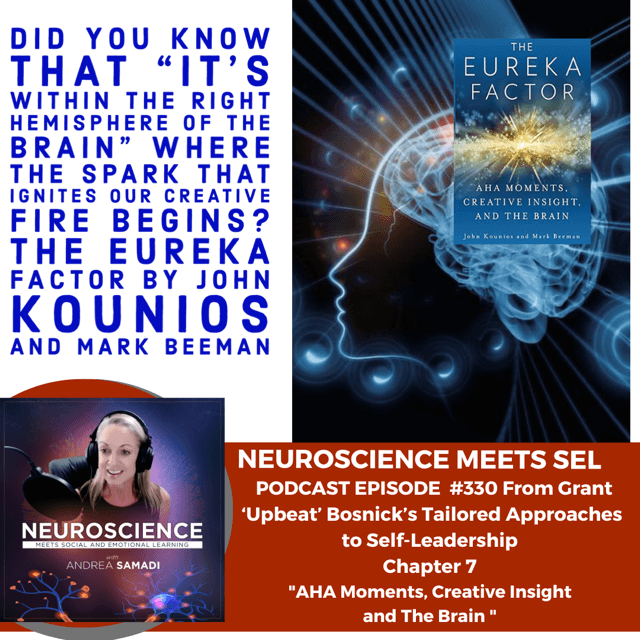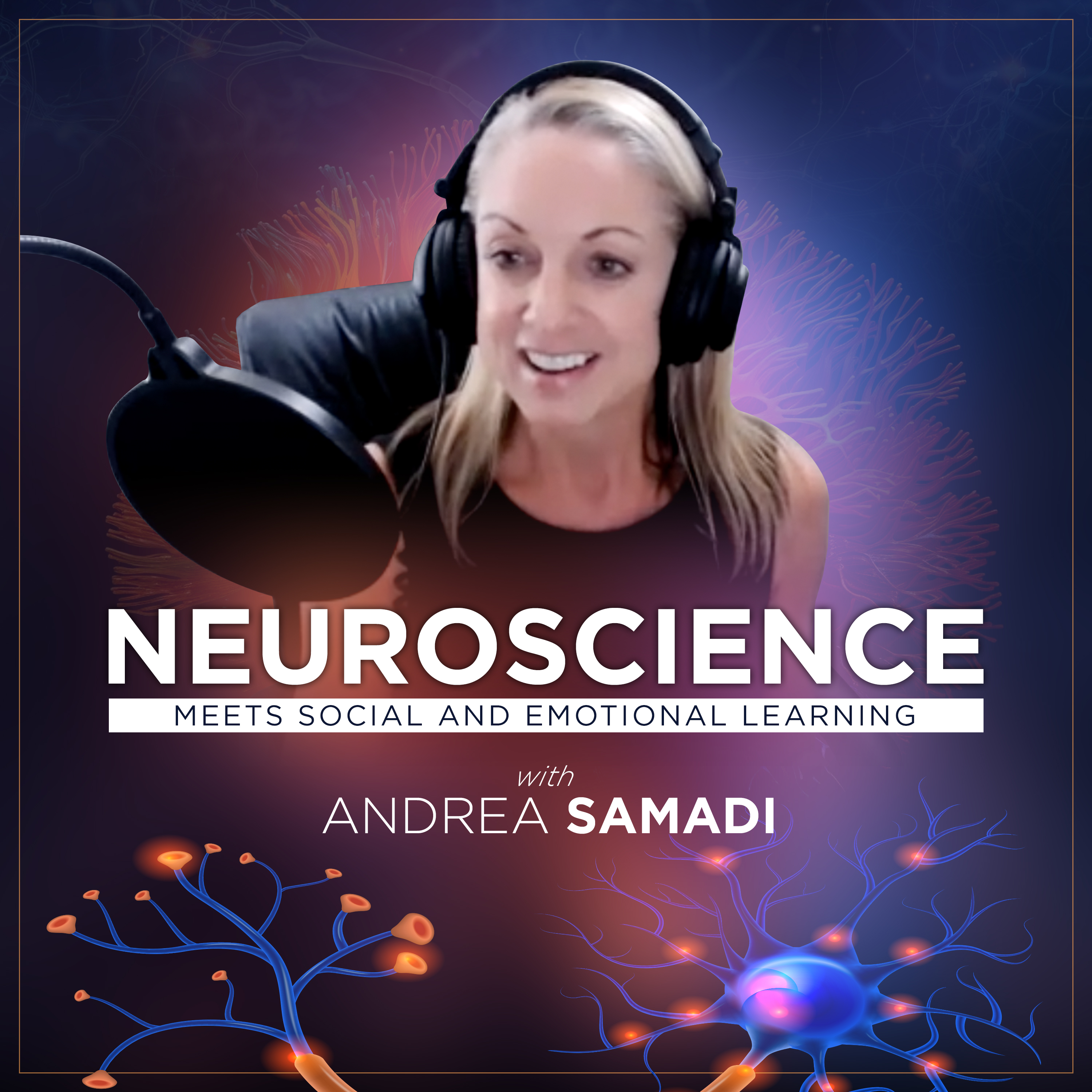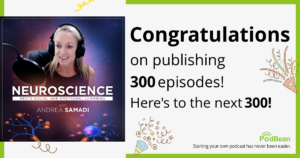Welcome back to the “Neuroscience Meets SEL Podcast” this is Andrea Samadi. This interview will be broadcast on YouTube as well as on the regular podcast channel, so be sure to look for the YouTube link in the show notes if you would like to view the video.
Today I want to welcome our special guest, Chloe Amen. If you follow Tana and Dr. Daniel Amen’s work on their Brain Warrior’s Way Podcast[i], she doesn’t need an introduction, because the past couple of weeks she’s been speaking about the soon to be released book that was written by her Dad, Dr. Daniel Amen, who draws on his experience as a neuroscientist and psychiatrist as well as the latest brain science to help you study more effectively, learn faster, and understand how your brain works to optimize results (whether we are talking about academic results or results in the boardroom) they both begin with an understanding of our brain. Chloe and her cousin Alizé Castellanos are major contributors to this book, offering modern day strategies that students and adults will relate to (Coming Sept 17th…you can pre-order it on AMAZON)[ii] “Change Your Brain, Change Your Grades.”
Here’s more about Chloe so you can see the vast experience that has led her to be an expert and role model for others in this field at such a young age.
Chloe Amen, now a junior in high school (a straight A student who has just finished sophomore classes) has been a part of the National Honor Society for the past three years. She was a guest star on the popular public television show Feel Better Fast[iii] (with Dr. Daniel Amen), and contributor and guest star in the high school program Brain Thrive by Twenty Five,[iv] which is designed to help teens improve brain function and performance. (This is the most thorough and engaging online course that I have ever taken, teaching the theories of brain development as it relates to life success) and has been used in forward thinking schools looking to give their students the leading edge that comes with these strategies. She is an intern for the Mayor’s Youth Council of Newport Beach, which participates in local government and community service. Chloe also has a passion for service and is an active volunteer for Girls Inc., an afterschool girl’s empowerment program. Chloe has a passion for performing arts, where she is currently pursuing a career. Volunteering at church in activities such as student leadership and campus cleanup has been an ongoing devotion. With her free time Chloe enjoys practicing martial arts, dance, songwriting and singing, and the arts. In elementary and early junior high, Chloe struggled with anxiety and organization which affected her academic performance. Through the techniques she has learned and shared in Change Your Brain, Change Your Grades, she has transformed her mindset and work ethic. As a result, she now has a 4.0 GPA and thoroughly enjoys learning.
Welcome Chloe! It’s an honor to have you here today.
Q1: Can you give us some background of growing up with brain strategies infused into your household and how you got involved with the modern version of this book, Change Your Brain, Change Your Life?
Before your involvement with this new book, that’s coming out September 17th, you were already actively involved with helping others understand the power involved with their brain’s function as it relates to achievement. I took the Brain Thrive by 25 Course[v] at least 2 years ago, so am I correct to say that you were 13 when you filmed that? One of the biggest lessons I learned from watching you in the teen panel of was that your brain is not fully developed until age 25 for females and 28 for males.
Q2: Can you give us some thoughts of how this fact has changed your decision-making process and perhaps some thoughts of things you know you will do differently with this knowledge as a young adult? Chloe mentions that she has always been taught to make decisions with her brain health in mind being raised by Dr. Daniel Amen and Tana Amen, leaders and pioneers in this industry.[vi]
Q3: Let’s talk about this NEW book “Change Your Brain, Change Your Grades” that is not just for students. It also contains tips and strategies that can be applicable for anyone looking to improve their results in life (how to get a raise at work)…it’s about learning new things to make yourself more valuable. What interested you to get involved with writing and adding tips into the newer version of this book?
Q4: When it comes to study habits, organization, productivity and results, there’s a knack for finding the right balance that can set you up for success in life…or failure. Can you explain the 3 brain types that “Change Your Brain, Change Your Grades” outlines? What’s your brain type? What are the other types so listeners can figure out what their brain type might be, whether they are a student in the classroom, or an adult looking for a competitive advantage?
Q5: I remember one of my mentors always quoting that “Fear of public speaking is America’s biggest phobia—before death (that’s at #5) meaning that many of us would rather die than make a fool of ourselves in front of others. What tips do you have for public speaking, with the brain in mind? Can you cover why practice before a presentation is so important?
Q6: Nutrition plays a huge role in determining success in the classroom, as well as the boardroom. For those who have not been following your parents’ work, (on the Brain Warrior’s Way Podcast) can you give some tips on how you began to implement healthy nutrition into your life for improved results? Can you talk a bit about how you handle this as a teen when all your friends might be choosing less healthy food options? How did understanding your brain type help you to choose the best diet to optimize your productivity and results?
Q7: With social media emerging as a means of communication the past 22 years with AOL messenger being my first memory of online communication starting in 1997 (a bit before you were born) the world is so different now for teens growing up using technology and social media. How has not taking things personally helped you at age 15 and how do you stay focused on your academics/away from drama that can emerge online?
Q8: Any final thoughts/tips on how you can “Change Your Brain, Change Your Grades” that we might have missed.
Thank you for taking the time out of your Monday that I know includes school work and many other activities to speak with us today. I think you are brilliant beyond your years and I just wish I had an understanding of this information when I was 15. I’m looking forward to the release of this book and what you will create next.
REFERENCES:
[i] https://brainwarriorswaypodcast.com/
[ii] https://www.amazon.com/Change-Your-Brain-Grades-Science-Based/dp/1948836858/ref=sr_1_1?keywords=change+your+brain+change+your+grades&qid=1565049736&s=gateway&sr=8-1
[iii] https://www.kpbs.org/news/2019/mar/18/feel-better-fast-and-make-it-last-daniel-amen-md/
[iv] https://www.brainmdhealth.com/brainthriveby25
[v] https://www.brainmdhealth.com/brainthriveby25
Podcast: Play in new window | Download
Subscribe: Apple Podcasts | RSS
